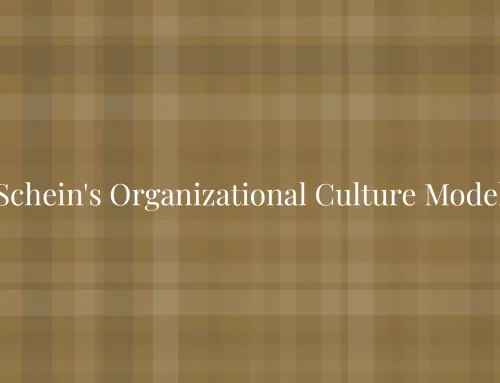In a fast-paced, ever-changing world driven by data-driven decision-making processes, few could argue against the importance placed on critical thinking abilities. Although this holds true for most issues in daily life such as politics or education where rationality and reason should always play an essential role; there seems a disconnect when it comes down misconceptions about economic progress or global health levels.
One particular mindset mentioned prominently throughout Hans Rosling’s book “Factfulness” stands out – The Destiny Instinct.
Rosling explains how a seemingly harmless belief in one’s fate can have devastating consequences if left unaddressed through proper understanding and clearheadedness with actual facts supporting them.
Destiny Instinct
Destiny Instinct is a cognitive bias that makes people believe that certain things are predetermined or inevitable. This bias can be dangerous because it can lead to fatalism and a lack of action. In his book, Factfulness, Hans Rosling explains how the Destiny Instinct can affect our perception of the world and offers tips on how to overcome it.
As humans, we have a tendency to believe that certain things are meant to be. We think that some events are predetermined or inevitable, and that there is nothing we can do to change them. This cognitive bias is known as the Destiny Instinct. It can be dangerous because it can lead to fatalism and a lack of action. In his book, Factfulness, Hans Rosling explains how the Destiny Instinct can affect our perception of the world and offers tips on how to overcome it.
Example Of Destiny Instinct
Destiny Instinct can be seen in various aspects of our lives, from personal relationships to global issues such as climate change or poverty. For example, someone who believes in destiny may attribute a failed relationship to “bad luck” rather than taking responsibility for their own actions or behaviors.
One example of the Destiny Instinct is the belief that poverty is inevitable. Many people believe that poverty is a natural state of being for some countries or regions, and that there is nothing that can be done to change it. This belief can be dangerous because it can lead to a lack of action to address poverty. In reality, poverty is not inevitable, and there are many examples of countries that have successfully reduced poverty rates.
Here are some additional examples of the Destiny Instinct:
- Belief in predetermined social hierarchy: Many people believe that social hierarchy is predetermined by factors such as genetics or divine will. This belief can lead to a lack of social mobility and can perpetuate inequality
- Belief in predetermined success or failure: Some people believe that success or failure in life is predetermined by factors such as luck or destiny. This belief can lead to a lack of effort or initiative, as people feel that their outcomes are out of their control
- Belief in predetermined national destiny: Some people believe that the fate of a nation is predetermined by factors such as geography or history. This belief can lead to a lack of effort to improve the country or to address its problems, as people feel that their efforts will not make a difference
- Belief in predetermined personal destiny: Some people believe that their personal destiny is predetermined by factors such as astrology or numerology. This belief can lead to a lack of personal responsibility or agency, as people feel that their lives are guided by forces beyond their control
- Belief in predetermined gender roles: Some people believe that gender roles are predetermined by biology or tradition. This belief can lead to a lack of gender equality and can limit the opportunities and choices available to individuals
- Fatalism in Developing Countries: One of the most common manifestations of the Destiny Instinct is the belief in fatalism. In many developing countries, people believe that their fate is determined by factors beyond their control, such as their social status, birthplace, or even luck. This belief often leads to resignation and a lack of effort, which in turn perpetuates poverty and underdevelopment
- Predestination in Religion: Another example of the Destiny Instinct can be found in religious beliefs that emphasize predestination. For instance, some Christian denominations believe that God has already determined who will be saved and who will not. This belief can lead to a sense of powerlessness and a lack of agency, as individuals may feel that their actions have no impact on their ultimate fate
- Lack of Action on Climate Change: The Destiny Instinct can also be observed in our response to climate change. Many people believe that the damage has already been done, and that it is too late to make a difference. This belief can lead to a lack of action, as individuals may feel that their efforts will not make a significant impact
- Apathy Towards Politics: The Destiny Instinct can also manifest itself in our attitude towards politics. Some people believe that politicians are corrupt and that their actions have little impact on society. This belief can lead to apathy and a lack of engagement, which in turn perpetuates the status quo
These examples illustrate how the Destiny Instinct can lead to fatalistic thinking and a lack of agency or responsibility. To overcome this instinct, it is important to recognize that outcomes are not predetermined and that individual and collective actions can make a difference. By focusing on actions and agency, we can work towards creating a better future for ourselves and for others.
Advantages
The Destiny Instinct is generally considered to be a cognitive bias that can lead to negative outcomes, such as resignation, apathy, and a lack of effort. However, some people may argue that there are potential advantages to this instinct. However, one possible advantage is that it can provide a sense of comfort or security. Believing that certain events are predetermined can make us feel like we have less control over our lives, but it can also make us feel like we are not responsible for negative outcomes. It could also help individuals cope with uncertainty and reduce anxiety concerning future events that may be out of their control. Moreover, the belief in destiny can encourage people to work hard towards their goals while accepting setbacks as part of their journey. This perspective is important because it provides meaning and purpose to life’s ups-and-downs.
- Psychological Comfort: Believing that one’s fate is predetermined can provide a sense of comfort and security, especially in uncertain times. When individuals feel that they have no control over their circumstances, they may find solace in the idea that everything happens for a reason and that there is a greater plan at work
- Acceptance of Life Events: The Destiny Instinct can also help individuals accept negative life events, such as illness or loss, by attributing them to fate rather than personal failure or inadequacy. This can help individuals avoid feelings of guilt or self-blame, which can be psychologically damaging
- Humility: Believing in predestination or fate can also help individuals develop a sense of humility and acceptance of their limitations. Recognizing that some things are beyond our control can help us focus on the things that we can control, and develop a sense of gratitude for the good things in life
- Fatalism in the Face of Adversity: In some situations, fatalism may lead to greater resilience in the face of adversity. For example, in a natural disaster, fatalistic beliefs may help individuals accept the situation and focus on survival rather than giving up or becoming overwhelmed
- Predestination in Religion: For some people, beliefs in predestination can provide a sense of purpose or meaning. It can help individuals feel that their lives have a predetermined path, and that their actions are part of a greater plan or purpose.
Disadvantages
The disadvantages of the Destiny Instinct are numerous. First, it can lead to fatalism and a lack of action. If we believe that certain events are predetermined or inevitable, we may not take action to prevent or mitigate negative outcomes. Second, it can lead to a negative perception of the world. If we believe that poverty, war, or other negative events are inevitable, we may view the world as a hopeless or dangerous place. Finally, it can lead to a lack of empathy. If we believe that certain people or groups are destined to suffer, we may not feel motivated to help them.
Overcoming This Instinct
The Destiny Instinct can be a difficult cognitive bias to overcome, as it is deeply ingrained in many cultural and religious beliefs. Overcoming this instinct requires a shift in mindset, and a recognition that our actions do have an impact on the future. Here are a few strategies that can help overcome the Destiny Instinct:
- Embrace the Power of Agency: One of the key steps in overcoming the Destiny Instinct is to recognize the power of our own agency. Our actions do have an impact on the world around us, and we have the ability to shape our own future. By focusing on what we can control, and taking action where we can, we can begin to overcome feelings of powerlessness
- Focus on Incremental Progress: Rather than being overwhelmed by the idea of changing the world, focus on making incremental progress towards a specific goal. By breaking down larger goals into smaller, more achievable steps, we can build momentum and create a sense of accomplishment
- Cultivate a Growth Mindset: The Destiny Instinct can be reinforced by a fixed mindset, in which we believe that our abilities and circumstances are predetermined. Cultivating a growth mindset, in which we recognize our ability to learn and grow, can help us overcome this instinct and focus on the potential for change
- Seek Out Positive Role Models: Surrounding ourselves with positive role models who embody agency and a growth mindset can be a powerful way to overcome the Destiny Instinct. By observing and learning from individuals who have achieved success despite adversity, we can gain inspiration and motivation to take action in our own lives
- Use Data and Evidence to Guide Action: Finally, it is important to use data and evidence to guide our actions. The Destiny Instinct can be reinforced by a lack of information, or by a tendency to focus on anecdotal evidence rather than statistics. By seeking out accurate and reliable information, and using it to inform our decisions, we can ensure that we are making a meaningful impact on the world
- Develop a Growth Mindset: Adopting a growth mindset can help individuals recognize that they have the power to change their circumstances and shape their own future. This can involve cultivating a belief in one’s ability to learn and improve, and focusing on effort and perseverance rather than innate talent or luck
- Set Goals and Take Action: Setting clear goals and taking action towards achieving them can help individuals feel more in control of their destiny. This can involve breaking larger goals into smaller, achievable steps, and tracking progress along the way
- Practice Mindfulness: Mindfulness practices can help individuals become more aware of their thoughts and emotions, and develop a more objective perspective on their circumstances. This can involve practices such as meditation, journaling, or simply taking time to reflect on one’s experiences
- Seek Support: Connecting with others who have overcome the Destiny Instinct or who share similar goals and values can provide motivation and support. This can involve joining groups or communities that align with one’s interests or values, or seeking out mentors or role models who have achieved similar goals
- Challenge Beliefs: Finally, it is important to challenge any beliefs or assumptions that perpetuate the Destiny Instinct. This may involve examining cultural or religious beliefs that promote fatalism or predestination, and considering alternative perspectives or interpretations. It may also involve examining one’s own internal dialogue and challenging negative self-talk or limiting beliefs.




